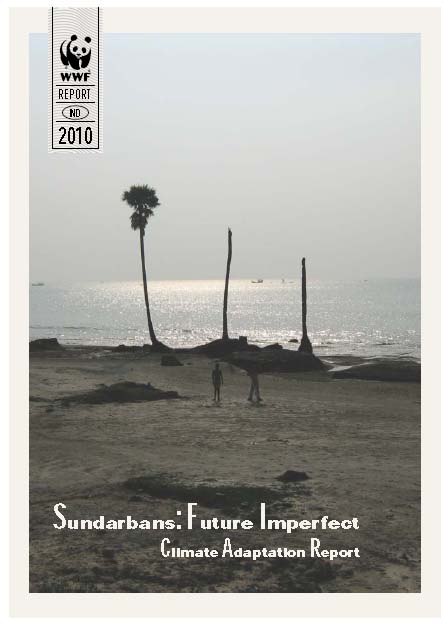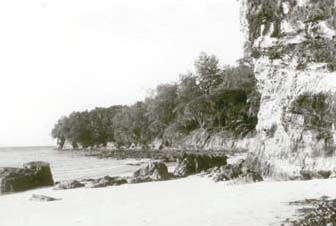Climate and Weather
An analysis of West Bengal Ground Water Resources (Management, Control and Regulation) Act 2005
Posted on 11 May, 2011 02:17 PMIntroduction
SANDEE's Call for research Pre-Proposal for Winter 2011 Research Competition - Apply by 30th May 2011
Posted on 11 May, 2011 10:43 AM
The South Asian Network for Development and Environmental Economics (SANDEE) is a regional network that provides research support to South Asian researchers and institutions interested in the inter-connection among development, natural resource use and the environment. SANDEE is currently inviting research pre-proposals on the Economics of Natural Resource Use and Environmental Change in South Asia. Concept notes, if accepted, will lead to an invitation to submit a full research proposal.
"Media getting sensitive towards water and sanitation issues in North Bihar"-Recent updates from the work of Megh Pyne Abhiyan
Posted on 10 May, 2011 06:41 PM. I had shared how Megh Pyne Abhiyan through its local partner - Samta in Khagaria (supported by Gramyasheel, Kosi Seva Sadan, Ghoghardiha Prakhand Swarajya Vikas Sangh and Water Action) has been able to collaborate with the district administration to mainstream issues concerning water and sanitation for the flood prone areas.
In Supaul, the district administration requested our local partner, Gramyasheel to write about alternative drinking water practices (appropriate for the district) for a publication - Supaul Zila Ki Smarika, brought out by the district administration. A definite indication of the WATSAN practices being recognized at the local level. Though the collaboration is an ongoing process which would lead to positive results if time, ideas and perseverance are invested appropriately.
Enabling dry land farmers to cope with climate change in Karnataka - An article by R Dwarakinath, AME Foundation
Posted on 10 May, 2011 12:58 PMAuthor: R Dwarakinath
‘Miles to go before I sleep’ Indian agriculture, after green revolution, has fallen on to a lower trajectory of growth. But, this requires a different set of technologies and different kind of development strategy. This is necessary to lift sector production, alleviate poverty, regenerate ecology, and also to cope with climate change. A formidable but inevitable task.
Climate change has become a fact of life. The concern is assuming threatening proportions by the day. There are several efforts at the global, national and institutional levels to understand the phenomenon and to deal with its impact. At the moment, two dimensions of the problem are engaging the attention – how to mitigate, if possible reverse, the building up processes; and, how to cope with, if possible counter, the effects of climate change on human life, including farming. The answers are vague. So far, South Asia is regarded as one of the most vulnerable areas in the world. Naturally, it has become a matter of great concern, as it pertains to the well-being of the dry land farmers on the upland areas in Karnataka.
Sunderbans - A climate adaptation report by World Wildlife Fund India
Posted on 09 May, 2011 09:23 PM Beginning in 2005, WWF-India has conducted dozens of personal interviews to record how climate change impacts people's lives here and now. These perceptions demanded that s
Beginning in 2005, WWF-India has conducted dozens of personal interviews to record how climate change impacts people's lives here and now. These perceptions demanded that s
India Meteorological Department is looking for proposals on research in the field of meteorology and atmospheric sciences
Posted on 29 Apr, 2011 02:25 PMIndia Meteorological Department (IMD) conducts and promotes R & D in different disciplines of meteorology. Main objective of IMD’s R & D activities is to improve its services to various users.
India's forests and REDD+ - A factsheet prepared by Ministry of Environment and Forests
Posted on 28 Apr, 2011 04:29 PMThe benefits of working with REDD and the need and benefits of getting more ambitious by accepting REDD+, which is about finding financial value for carbon stored in standing forests which therefore incentivises the positive elements of conservation is also elaborated here.
Impact of the 2004 tsunami on the geology of Car Nicobar Island – A paper in Current Science
Posted on 25 Apr, 2011 07:17 PM The historic tsunami of 2004 in the northern Indian Ocean severely affected the eastern coastal areas of peninsular India and Andaman-Nicobar Islands.
The historic tsunami of 2004 in the northern Indian Ocean severely affected the eastern coastal areas of peninsular India and Andaman-Nicobar Islands.
Global equatorial sea-surface temperatures over the last 150,000 years: An update from foraminiferal elemental analysis – A paper in Current Science
Posted on 25 Apr, 2011 10:21 AMSolar insolation changes are amongst various factors that affect sea-surface temperature, which in turn modulate global climate. Out of all the oceanic regions, equatorial region receives the maximum solar insolation and thus is the locale for the warmest waters. However, how the equatorial sea-surface temperature affects global climate, is still not clear.
Groundwater: From mystery to management - An article by TN Narasimhan
Posted on 22 Apr, 2011 12:07 PMGroundwater has been used for domestic and irrigation needs from time immemorial. It is a component of the hydrological cycle, vital for human sustenance. Unlike surface water, groundwater cannot be readily observed. Consequently, it was long considered to be mysterious or even occult in nature, influencing legal decisions relating to groundwater ownership and use.





